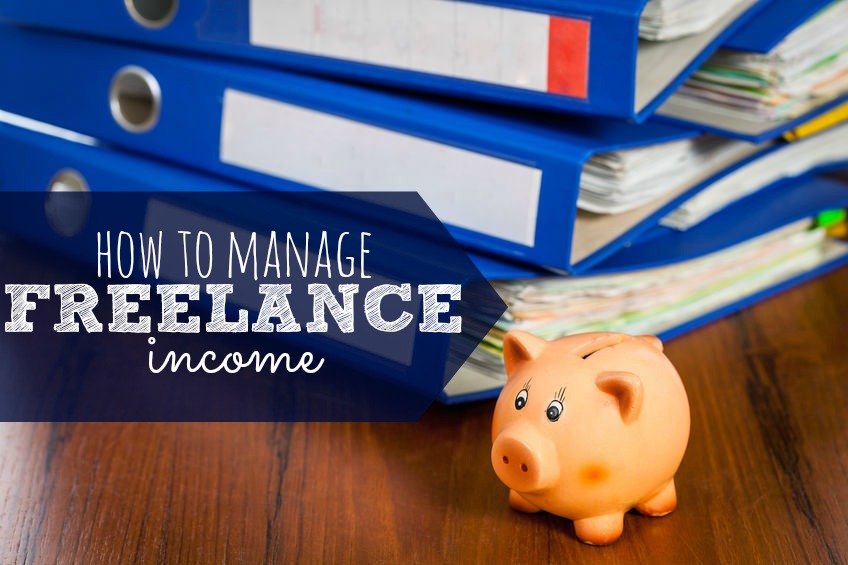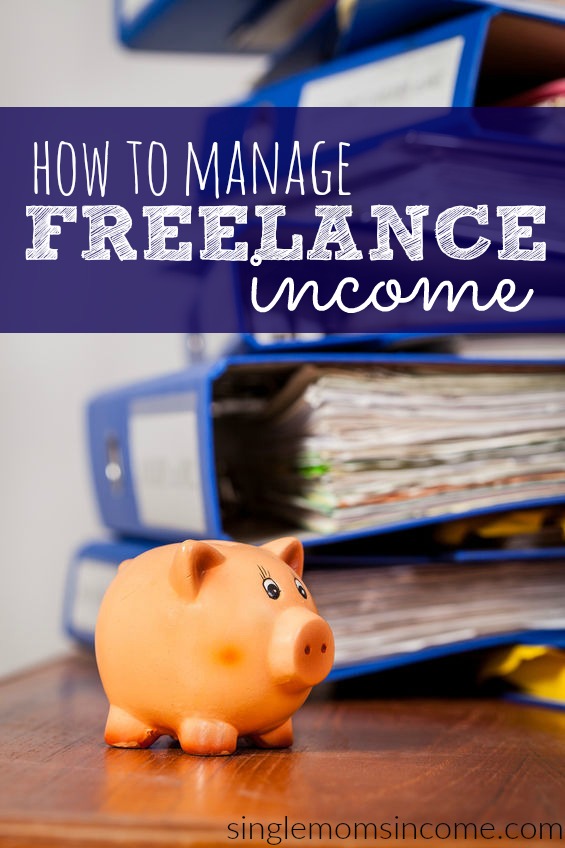 Freelancing your skills and establishing a profitable side hustle is a great way to diversify and increase your income. Since quite a few jobs don’t offer an adequate amount of benefits or pay, many people are leaning toward side hustling and interested to learn how to earn extra money outside of their main job.
Freelancing your skills and establishing a profitable side hustle is a great way to diversify and increase your income. Since quite a few jobs don’t offer an adequate amount of benefits or pay, many people are leaning toward side hustling and interested to learn how to earn extra money outside of their main job.
On Single Moms Income, we’ve mentioned numerous ways to earn extra money and one of my favorite ways is by freelancing. More specifically, I personally enjoy freelance writing. But other interesting freelance niches include graphic design, programming, virtual assistant work, consulting, editing, and photography just to name a few.
Once you establish your freelance side hustle and start bringing in some money from it, your next big challenge will be managing that extra money and deciding how you want to spend or save it.
Some Common Unhelpful Ways to Use Your Freelance Income Include:
- Blowing the extra money on takeout and entertainment
- Not saving anything for taxes
- Giving in to lifestyle inflation and buying extra items you normally wouldn’t purchase
If you started freelancing on the side to improve your financial life, it’s important to avoid common spending temptations as your income increases and manage the money you are earning properly. Here are just a few tips to help you manage your freelance income.
Open a Separate Business Checking Account and Track your Earnings
Depending on how much you’re bringing in, you may want to put your money in a separate business checking account so it’s not just sitting in a PayPal account or getting mixed up with the rest of your money.
If you have business expenses, a business checking account will help you separate those transactions from your regular spending. You can also link any bookkeeping software you use to your business account for added convenience come tax time.
No matter how much you are earning, it’s important to track your income each and every month along with your expenses. Alexa does this publicly and it’s a good example to reference if you have freelance income of your own to track. When it’s time to do taxes, you’ll find the process much simpler if you’ve been keeping record of your earnings and expenses the entire year.
Set Aside up to 30% of Your Earnings for Taxes

Speaking of taxes, setting aside a portion of your income for tax purposes is a must. When you’re only bringing in a few hundred dollars each month, it’s easy to brush off saving for taxes for the time being. When I started out freelancing, I did this and regretted it soon after. A few months into freelancing, I started setting 30% of my earnings aside and sometimes more because I had to play catch up from the months when I saved nothing.
Why 30%? Freelancers are taxed more since they work for themselves and don’t have an employer to help pay a portion of their taxes. Some freelancers save less like 20-25% of their earnings which is most likely because they’ve determined their tax bracket and either talked to an accountant or have experience paying freelance taxes for the past few years. If you have a lot of expenses and deductions that you can make on your taxes, you may be able to set aside less than 30% of your earnings each month, but you should talk to a tax professional before making that decision.
To make things easier, you can also submit quarterly taxes every three months so you won’t have one huge bill at the end of the year. You can send your payments directly to the IRS.
Clarify Exactly Where You’d Like the Extra Money to Go Toward
So you don’t get caught up spending your freelance income on takeout pizzas, clothes, and late night trips to the movie theater, try to prioritize your needs and reasons for earning extra money in the first place. Maybe you want to pay off student loan debt, have enough to max out your retirement for the year, or save up enough money for a new car or a nice vacation.
Whatever your needs are, prioritize them by taking care of those goals first right after you deduct taxes from your freelance income. What I did to prioritize my financial needs and goals involved changing my mindset to not even view freelance income as income I can keep. So far, I’ve been putting most of my earnings toward my student loan debt and emergency fund.
When payments from clients hit my account, I know exactly what I will put them toward and don’t even think about keeping the money for myself as an option. I simply budget well with the rest of my income so I don’t have to consider using freelance income to meet any of my regular expenses.
Carefully Invest in Your Business
Investing in your freelance business can be tricky but necessary if you want it to grow. You may need to purchase training courses, hire help, or purchase equipment and materials to help increase your efficiency along with the value you provide.
When it comes to investing in your business, wait until you are earning enough income to justify making the investment and consider how it will help take your business to the next level. You don’t have to be earning a ton of money to start investing in your business either. If you are feeling burnt out from doing certain tasks or need the proper training or help from a coach to get started, these reasons could justify investing in your business early to see positive results later.
Always focus on measuring the return on your investment and feel free to ask others for their honest advice and opinion on services or items you are interested in spending money on to benefit your business.
Also, keep in mind that you can deduct any money spent on hiring contractors, paying for coaches and courses, traveling for conferences, and even paying for your phone and internet services when you do your taxes which makes investing in yourself even more worth it.
Properly managing your freelance income will help you reach your goals faster and consistently grow your income over time.
Do you earn any freelance income? How have you invested in your freelance business so far?
Photo Credit: verdateo / 123RF Stock Photo



I am just researching more on freelance writing and consulting. this is something I feel can earn a great side income for me and my family. you are absolutely right, many jobs don’t pay enough to keep up with life expenses and even if they do, it always better to not rely on one source of income. my goal is to have my full income, passive income and freelance and consulting income.
This will be a great guide for me to use in the future on how to manage that income well. thank you.
I’m glad you found this useful Pamela! Diversifying your income is always a good idea. Good luck with all your freelance goals!
I completely agree that deciding in advance what your extra income will go towards is a great idea. Otherwise, if your urge to spend it wins out its as if you are just taking on extra work for work’s sake. Pay down some debt or save toward an important purchase. Just make it count.
Exactly! Sometimes it isn’t always easy but it’s always worth it to put your extra income to your needs and goals over impulse buys. You’ll see better results that way.
Read about your experiences. I’m highly interested. Always use to joked with people about becoming a freelancer. Thank you for your encouragement.. . Thank you.